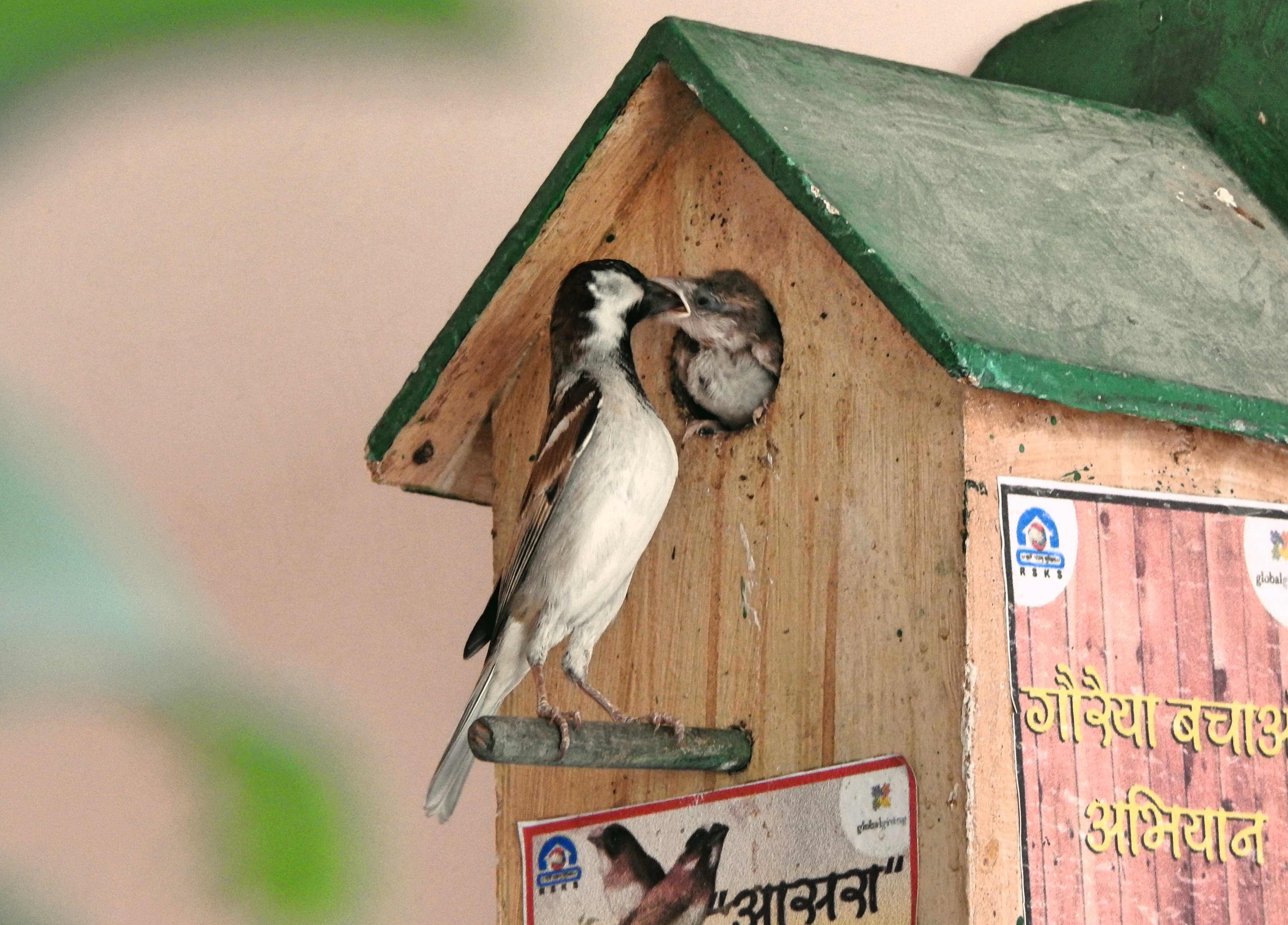
Save the innocent Sparrow Birds
Namaste Patron !
Warm Greetings from RSKS India .....
Most of us would have grown up listening to the chirps of sparrows, noticing these little birds prance around pecking at leftover food and insects in our backyards or being annoyed by the cacophony they create when they return to their nests in the evening.As children, we would havemarvelled attheir ability to build cosy nests in any part of the house or how they were so comfortable near us that they would not fly away unless you chase after them. As years went by, we learnt to take their presence for granted as is normally the case with anything that is neither exotic nor rare.
Sparrows have lived near human settlements for several thousands of years primarily due to their ability to adapt their foraging habits according to their environments.These humble birds fed on grains as well as seeds of weeds, insects and pests, safeguarding our agricultural crops in the process. As humans moved to urban settlements, sparrows evolved to be able to digest starch learned to feed on the left-over food from humans. Sparrows were an integral part of our life, no matter where you are on this earth and you will find them featuring in ancient literature and folklores from across the world.
The greed and avaricewith whichthe human racepursues our own progress and development,with blatant disregard to the impact this has on our biodiversity has taken a toll on the sparrows as well. Most of the urban areas are devoid of trees or shrubs which the sparrows need for roosting. There is hardly any water to be found outside for sparrows to drink and the situation is much worse during the summers that are getting swelteringlyhotter by the day. Extensive use of pesticides in agricultural farms is killing the rural sparrow population that feed on the weeds and insects in the farms. AnIndian Council for Agricultural Research study shows that the sparrow population has dwindled by 70% in several parts of India. The Royal Society for Protection of Birds has added the Sparrow to the “Red List” which is “the highest conservation priority, with species needing urgent action”.
If history has taught us anything, it is that we are all part of a co-dependent ecosystem where each species plays a role and ignoring this will be at our own peril. China learnt this all too well decades back from the aftereffects of their “four pests’ campaign”, where they identified sparrows, rats flies and mosquitoes as the cause of epidemics and went about eradicating them. The part played by sparrows in maintaining the delicate balance of our biosphere was not understood by this campaign. As millions of sparrows fell, hordes of pests attacked the agricultural fieldsresulting in a drastic reduction in crops and eventually leading to loss of nearly 35 million human lives.
At Rajasthan Samgrah Kalyan Sansthan (RSKS), we have been running a Save the Sparrow project to prevent the extinction of sparrows as well as promote their breeding. The main objective of this project is to install 2500 eco-friendly bird nests. We have installed 1500 eco-friendly nests so far, for nesting of the sparrows and to provide them with food and water. RSKS also conducts several awareness programs to inspire the public to save the sparrows.The response to these awareness campaigns has been overwhelmingly positive. Several people have come forward to install the bird nests at their homes. It was heartening to see that in 4-5 days after installation of the nests in these homes, the sparrows that had deserted these areas are flocking into these homes and are occupying the nests. The nests also provide the homeowners a convenient space to house the sparrows with no disturbance to their daily lives.
RSKS has been relentlessly working on the Save the Sparrow project for the last one year. We take pride in the fact that our efforts are yielding positive results in saving the sparrow population and helping them grow. The foothills of Aravali ranges, where the sparrows had become more or less extinct, now reverberate with their melodious chirp.
As we are approaching March 20, which is World Sparrow Day, we urge everyoneto do the best they can to ensure that we do not abandon this small bird that is a quintessential feature of our natural surroundings. Otherwise, the sparrow will only exist only in the folklores of the past, serving us as a reminder of our collective callousness to the rest of the species.
We are requested to you please See The Project IMPACT...
https://www.youtube.com/watch?v=FGu-E27TQAU
https://www.youtube.com/watch?v=DxceQpKkaTE
Thanks & Regarding
Nisha Radhakrishnan
RSKS India's Volunteer
https://www.rsksindia.ngo
rsksindiaorg@gmail.com
